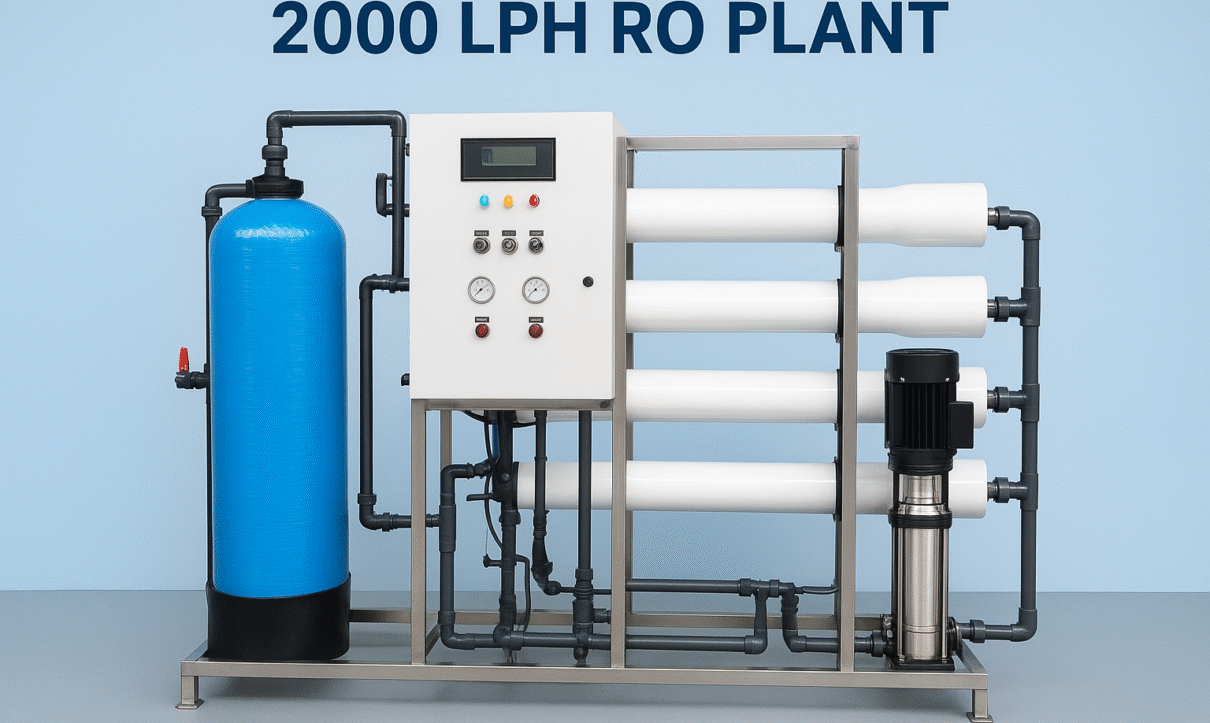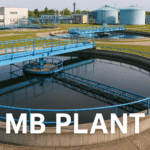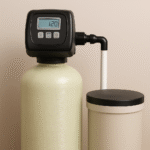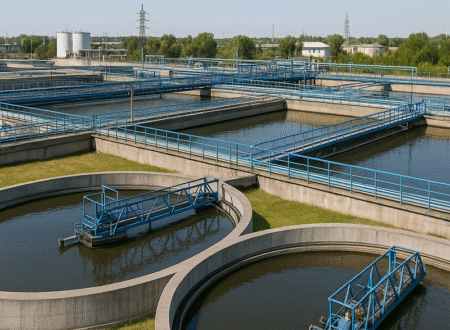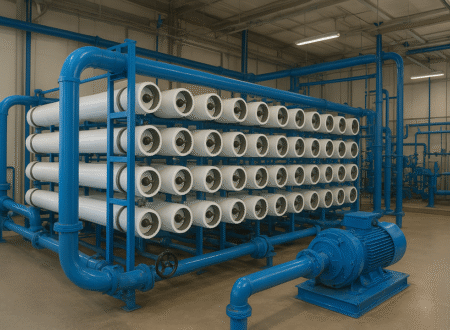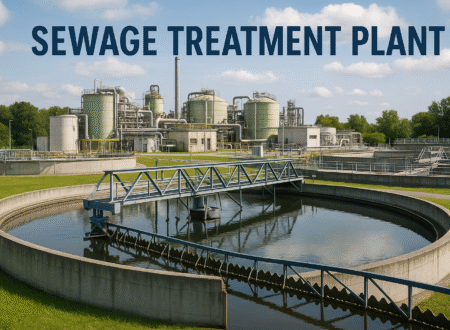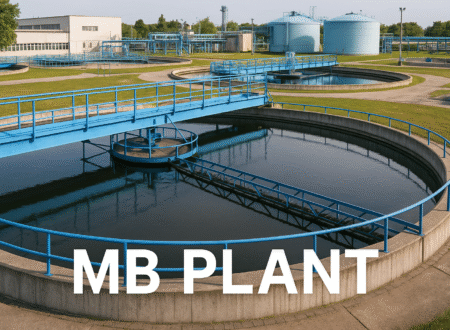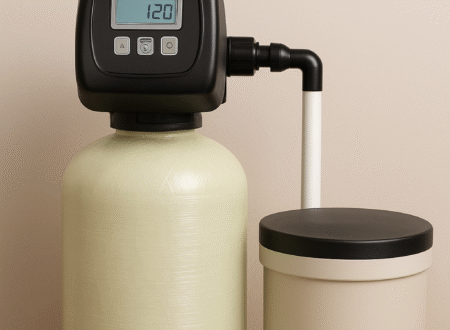Introduction
Industries across sectors—from pharmaceuticals to food processing—rely heavily on high-quality water for their daily operations. As water sources become increasingly contaminated due to pollution and industrial waste, the demand for advanced water purification systems has skyrocketed. One such solution that stands out in terms of efficiency, scalability, and reliability is the 2000 LPH RO Plant In Noida.
In this comprehensive guide, we will discuss everything you need to know about a 2000 LPH RO Plant In Noida for industries, including its features, applications, cost, maintenance requirements, and installation process. If you are considering investing in one, this article will resolve your queries and help you make an informed decision.
What is a 2000 LPH RO Plant in Noida?
A 2000 LPH RO (Reverse Osmosis) Plant is an industrial-grade water purification system capable of purifying 2000 liters of water per hour. It is designed to remove dissolved salts, heavy metals, microorganisms, chemicals, and other impurities from raw water, making it safe and suitable for industrial applications.
Key features include:
- High purification capacity (2000 liters/hour).
- Advanced filtration stages (sand filter, activated carbon filter, micron filters, RO membranes).
- Energy-efficient design with automatic operation.
- Suitable for industries with medium to large water requirements.
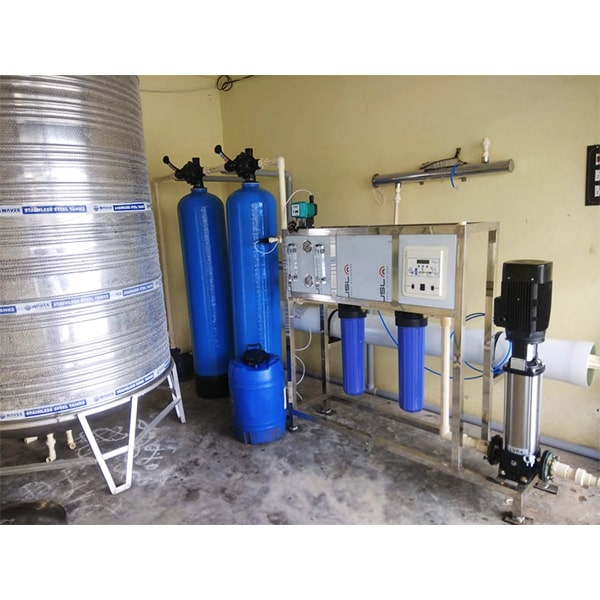
Why Do Industries Need a 2000 LPH RO Plant in Noida?
Industrial water requirements are vastly different from domestic needs. Contaminated water not only disrupts production but also damages machinery, reduces product quality, and increases operational costs. A 2000 LPH RO plant in noida ensures:
- Consistent Water Quality – Ensures that water used in production is free from TDS (Total Dissolved Solids), bacteria, and chemicals.
- Equipment Longevity – Reduces scaling and corrosion in boilers, cooling towers, and machinery.
- Compliance with Standards – Many industries must meet government and international water quality standards.
- Cost Savings – Reduces dependency on bottled or tanker water supply.
- Sustainability – Promotes responsible water management by recycling and reusing purified water.
Technical Specifications of a 2000 LPH RO Plant in Noida
While specifications may vary slightly depending on the manufacturer, a typical 2000 LPH RO plant in noida includes:
- Flow Rate: 2000 liters per hour
- TDS Reduction: Up to 95–99%
- Operating Voltage: 220V / 440V (depending on configuration)
- Power Requirement: 3–5 HP
- RO Membranes: 4–6 industrial-grade membranes
- Pretreatment Units: Sand filter, carbon filter, micron filter
- Pump Type: High-pressure pump (stainless steel)
- Material of Construction: FRP / SS / MS with epoxy coating
- Automation: Semi-automatic or fully automatic options
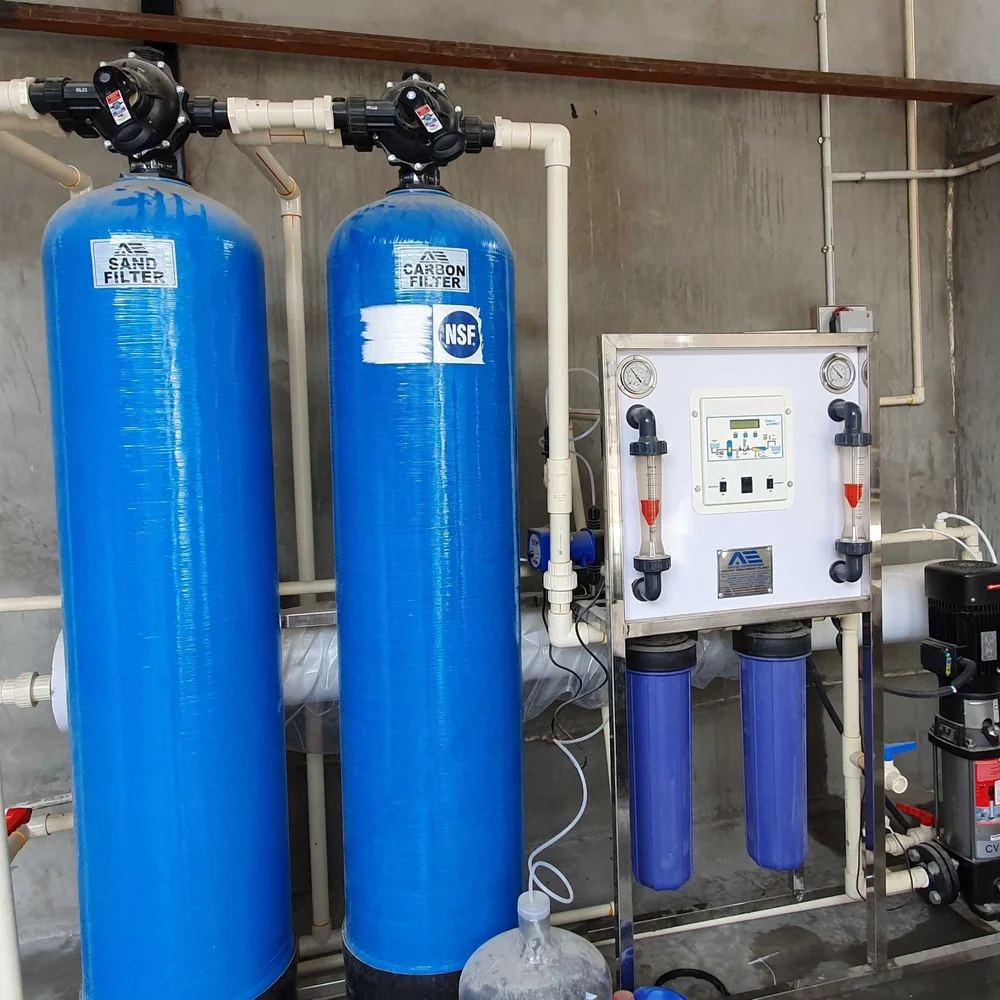
Applications of 2000 LPH RO Plant in Industries
The versatility of this plant makes it ideal for a wide range of industries:
- Food & Beverage Industry: For bottled water, soft drinks, juices, breweries, and dairy processing.
- Pharmaceuticals & Healthcare: To meet stringent purity standards for medicine production and lab use.
- Textiles & Dyeing Units: To prevent scaling and maintain fabric quality.
- Power Plants: For boiler feed water treatment.
- Hotels & Resorts: To provide safe drinking water to guests.
- Chemical & Manufacturing Units: To maintain product consistency and protect machinery.
Cost of a 2000 LPH RO Plant in Noida
The price of a 2000 LPH RO plant in India noida depends on several factors:
1. Design & Configuration
- A basic semi-automatic plant is more affordable compared to a fully automatic system with PLC-based controls.
2. Type of Raw Water
- If your raw water has high TDS or is sourced from borewell/industrial waste, additional pretreatment units may be required, which increases cost.
3. Material of Construction
- FRP plants are more economical, while stainless steel (SS) plants are costlier but highly durable.
4. Brand & Quality of Components
- High-quality membranes, pumps, and filters impact both cost and long-term performance.
Average Cost Range in India:
- ₹3.5 Lakhs to ₹7 Lakhs (depending on features, automation, and raw water quality).
👉 While the initial investment may seem high, the long-term savings on water purchases, reduced machine breakdowns, and compliance with regulations make it a cost-effective choice for industries.
Installation of a 2000 LPH RO Plant In Noida
Installing a 2000 LPH RO plant in noida requires careful planning to ensure efficiency and longevity. Here’s an overview:
1. Site Inspection & Water Testing
- Water samples are tested to understand TDS, hardness, pH, and contaminants.
- Plant design is customized based on water quality.
2. Space Requirement
- Approx. 15–20 feet area is required depending on plant design.
- Adequate space for inlet/outlet pipelines and maintenance access.
3. Electrical & Plumbing Setup
- Proper voltage supply and power backup are necessary.
- Inlet/outlet connections with storage tanks are arranged.
4. Plant Assembly & Commissioning
- Prefabricated units are assembled on-site.
- Membranes, pumps, and control panels are installed.
- A test run is performed to check flow rate, TDS reduction, and automation.
5. Training & Handover
- Operators are trained for basic operation and troubleshooting.
- Documentation and maintenance schedule provided.
Maintenance of a 2000 LPH RO Plant
Proper maintenance is crucial to ensure the plant runs efficiently for years.
Routine Maintenance Includes:
- Pre-treatment Cleaning – Sand and carbon filters should be backwashed regularly.
- Membrane Care – RO membranes must be cleaned or replaced periodically depending on raw water quality.
- Pump & Motor Servicing – Regular lubrication and inspection to avoid breakdowns.
- Chemical Cleaning – Anti-scalants and cleaning chemicals used for fouled membranes.
- Monitoring – TDS, pH, and pressure gauges should be checked frequently.
Average Maintenance Cost:
- Around ₹20,000 – ₹40,000 per year, depending on usage and water quality.
With proper servicing, a 2000 LPH RO plant in noida can last 10–15 years or more.
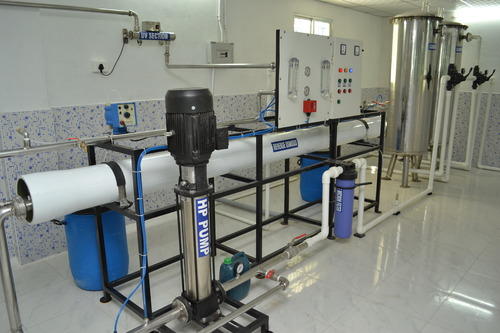
Factors to Consider Before Buying a 2000 LPH RO Plant
Before making a purchase, consider the following:
- Quality of raw water (borewell, river, municipal supply).
- Daily water requirement (2000 LPH = approx. 48,000 liters/day).
- Space availability and power supply.
- Preference for semi-automatic or fully automatic operation.
- Budget for installation and maintenance.
- After-sales service and spare part availability.
Benefits of Choosing a 2000 LPH RO Plant in Noida
- High water output suitable for medium to large industries.
- Reduces dependency on external water sources.
- Protects expensive machinery from scaling.
- Cost-effective and eco-friendly solution.
- Meets government water quality standards.
- Ensures uninterrupted industrial operations.
Why Choose Shri Balaji Aqua for Your 2000 LPH RO Plant?
When investing in an RO plant, choosing the right manufacturer is as important as the system itself. Shri Balaji Aqua is a trusted name in the water treatment industry, known for providing high-performance RO plants customized for industrial needs.
- Expertise in designing and installing plants across India.
- Use of high-quality membranes, pumps, and filters for durability.
- Affordable pricing with no compromise on quality.
- Reliable after-sales service and annual maintenance contracts.
- Custom solutions tailored to your raw water quality and industry requirements.
Whether you are in food processing, pharmaceuticals, textiles, or hospitality, Shri Balaji Aqua provides robust and efficient 2000 LPH RO Plants in noida that ensure uninterrupted water supply for your business.
(FAQs)
1. What is the price of a 2000 LPH RO Plant in India?
The cost of a 2000 LPH RO plant in India typically ranges from ₹3.5 lakhs to ₹7 lakhs, depending on design, automation level, raw water quality, and material of construction.
2. How much area is required to install a 2000 LPH RO Plant?
On average, you will need 15–20 feet of space for installation, including inlet/outlet pipelines, storage tanks, and space for routine maintenance access.
3. What is the life span of a 2000 LPH RO Plant?
With proper maintenance and timely replacement of membranes and filters, a 2000 LPH RO plant can last 10–15 years or more.
4. How often do RO membranes need replacement?
RO membranes usually last 2–3 years, depending on water quality and usage. Regular cleaning and pretreatment can extend their lifespan.
5. Which industries benefit the most from a 2000 LPH RO Plant?
Industries such as food & beverage, pharmaceuticals, textiles, hospitality, power plants, and chemical manufacturing benefit greatly from 2000 LPH RO plants due to their high water requirements and need for consistent water quality.
Conclusion
A 2000 LPH RO Plant is not just an investment in clean water—it’s an investment in your industry’s efficiency, compliance, and long-term sustainability. From cost considerations to maintenance requirements and installation process, this guide has covered everything you need to know before making a purchase.
If you are looking for a reliable, efficient, and cost-effective 2000 LPH RO Plant in noida for your industry, connect with Shri Balaji Aqua, a trusted leader in water treatment solutions.

